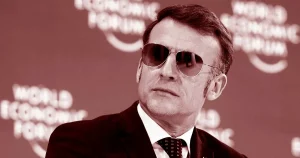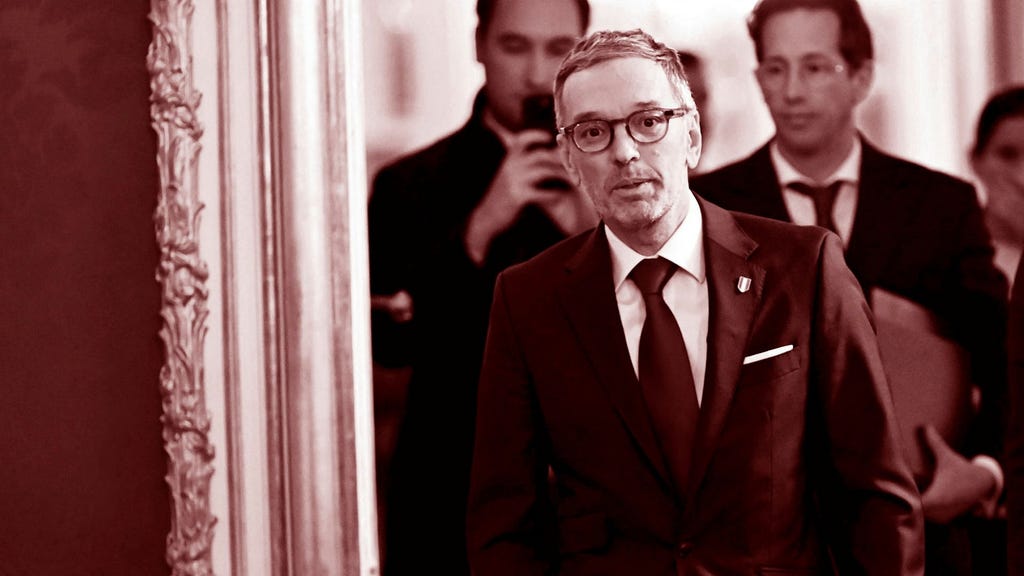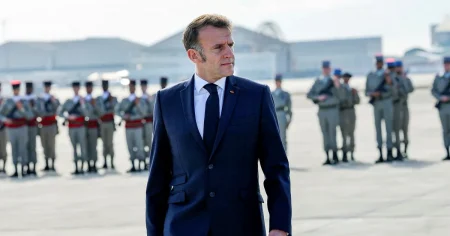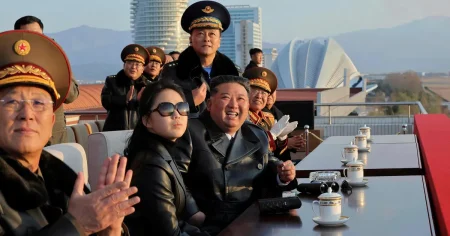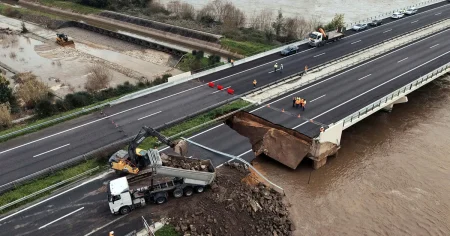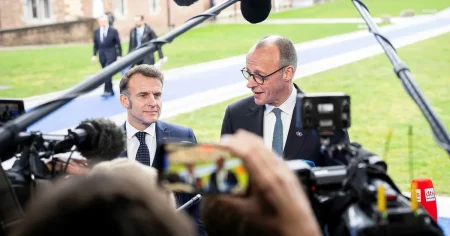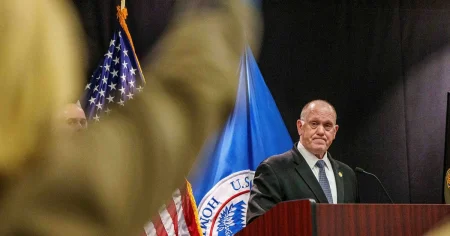The resurgence of the Freedom Party of Austria (FPÖ) marks a concerning development in European politics, raising alarms about the normalization of far-right ideologies and their potential impact on democratic institutions and international relations. Founded almost seven decades ago by former Nazis, the party’s historical ties to extremist elements are not merely relics of the past. Recent events, such as the playing of an SS hymn at the funeral of a longtime party member attended by high-ranking FPÖ officials, demonstrate the persistence of these troubling connections. The FPÖ’s electoral success, culminating in its position as the largest party in the Austrian parliament after the autumn 2023 elections, highlights the growing acceptance of far-right rhetoric within mainstream society. The subsequent failure of coalition talks between the Social Democrats, Liberals, and Conservatives has paved the way for FPÖ leader Herbert Kickl to attempt to form a government, with the Conservatives signaling their openness to such a partnership. This potential shift in power raises serious questions about the future political landscape of Austria and its implications for the broader European Union.
Herbert Kickl’s ascent to leadership within the FPÖ signifies a departure from even the superficial attempts at moderating the party’s image. He assumed the role following the 2019 Ibiza scandal, which exposed the previous leader’s attempt to solicit political favors from someone he believed to be a Russian agent. Unlike his predecessor, Kickl makes no effort to conceal his extremist views. His public statements, including criticisms of the Nuremberg trials and his use of the term ”volkskanzler,” a title associated with Adolf Hitler, reveal his embrace of a nationalistic and authoritarian ideology. These pronouncements, coupled with the party’s hardline stance on immigration, advocating for closed borders and forced repatriation, even of Austrian citizens, paint a disturbing picture of the FPÖ’s vision for the country. Furthermore, Kickl’s admiration for Viktor Orbán’s illiberal regime in Hungary signals a potential move towards dismantling democratic norms and institutions should the FPÖ succeed in forming a government.
The FPÖ’s focus on immigration serves as a convenient smokescreen for a more profound and dangerous agenda. Their rhetoric exploits anxieties surrounding cultural change and national identity, diverting attention from the party’s underlying authoritarian tendencies and its alarmingly close ties to the Kremlin. Kickl and the FPÖ have openly expressed their pro-Putin sentiments, and the likely future chancellor has vowed to challenge the EU’s sanctions against Russia. This stance raises significant concerns about Austria’s future role within the European Union and its potential alignment with a regime actively engaged in undermining democratic values and international stability.
The potential for Russian influence within Austrian politics extends beyond mere ideological alignment. During the previous coalition government between the Conservatives and the FPÖ from 2017 to 2019, Russia made a concerted effort to infiltrate the Austrian security services. Investigations revealed how Kremlin agents, embedded within the security apparatus, gained access to sensitive information about Russian dissidents and critical journalists residing in Vienna. Even more concerning were the close connections cultivated between Russian operatives and the FPÖ-controlled Interior Ministry, then headed by Herbert Kickl. These relationships were instrumental in discrediting the existing security services, paving the way for a planned restructuring that would have placed the organization under the control of Moscow’s agents. The Ibiza scandal and the ensuing government crisis ultimately thwarted this plan, but the episode serves as a stark reminder of the vulnerability of democratic institutions to foreign interference, especially when facilitated by individuals sympathetic to authoritarian regimes.
The prospect of Herbert Kickl, a figure implicated in the attempted Russian takeover of Austrian security services, becoming Chancellor is deeply troubling. His appointment would not only represent a victory for far-right populism but also potentially open the door to further Russian influence within Austria and the European Union. Kickl’s past actions raise serious questions about his commitment to democratic principles and his willingness to prioritize national security over political expediency. His leadership could undermine Austria’s commitment to European integration and its cooperation in upholding international norms and sanctions against Russia.
The rise of the FPÖ and the potential chancellorship of Herbert Kickl present a significant challenge to the European Union. It underscores the ongoing struggle against far-right populism, the vulnerability of democratic institutions to foreign interference, and the urgent need for a coordinated response to these threats. The events unfolding in Austria serve as a cautionary tale for other democracies facing similar challenges and highlight the importance of vigilance in safeguarding democratic values and protecting national security against external manipulation. The year 2025 begins with a cloud of uncertainty hanging over Europe, a testament to the fragility of democratic progress and the persistent threat posed by authoritarian ideologies.


